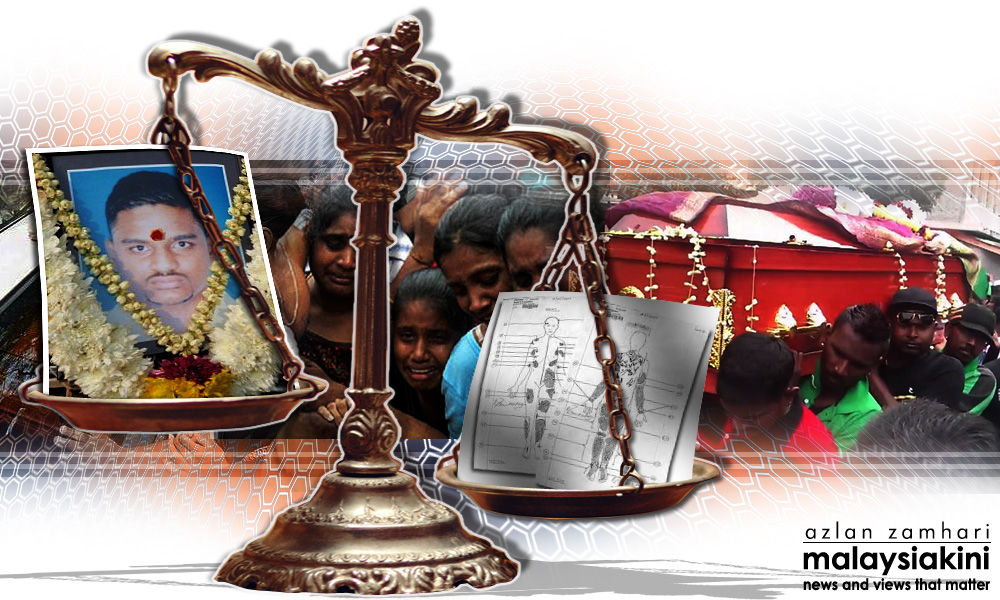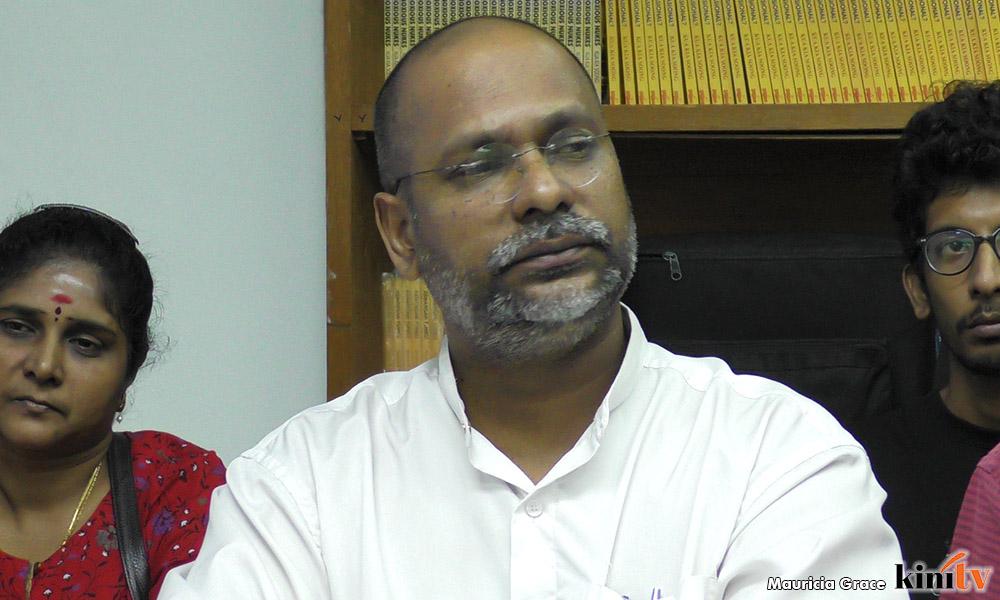
The Federal Court decision in A Kugan's case that no exemplary damages shall be awarded to family members of individuals who die in custody has been described as a "sad day for justice".
Lawyer M Visvanathan said yesterday's decision was shocking and does not bode well for a developing country like Malaysia.
“I guess more will die in custody now. The courts are the last bastion of hope for justice.
“It's rather sad that the court had decided to not award exemplary damages,” Visvanathan told Malaysiakini when contacted.
Kugan's lawyer Sivarasa Rasiah said the decision by the apex court would only encourage the powers that be, namely the police, to act without regard to the rights of detainees.
“It is better to see detainees dead, where their families won't get anything, rather than see them alive where they would be entitled to exemplary damages as a result of the abuses they had suffered,” Sivarasa said after the court's decision yesterday.

Agreeing with Sivarasa, Visvanathan (photo) said the court should take action against those who had acted beyond the law.
“Unfortunately, with the decision in Kugan's case, it would not send the right message to the police and the public. How can the family's estate receive compensation following the unwarranted death?” he said.
In a majority judgment yesterday, a five-member bench led by Chief Judge of Malaya Ahmad Ma'arop ruled in favour of the police, who appealed against the decision to award damages to Kugan’s mother N Indra.
According to a parliamentary reply, there were 15 cases of death in police custody last year. The Home Ministry stated that between 2000 and 2016, there were 284 custodial deaths.
This does not include deaths that occurred when the prisoners were in transit.
Visvanathan said he is handling five such cases in Kuala Lumpur, Johor and Penang.
“All will be affected by the Kugan's decision,” he said, including the case of P Chandran, a lorry driver who died while being detained at the Dang Wangi police station in 2012.
Visvanathan said the matter has been fixed for case management at the Federal Court next week.
“Certainly, I will ask for a re-visit of the Kugan decision following the police appeal in this case and other cases that are now on appeal,” he added.
In Chandran's case, the High Court awarded RM200,000 as exemplary damages to the family's estate and the decision was upheld by the Court of Appeal earlier this year.- Mkini



A. Kugan Ad Victimam Et Familia - UBI JUS IBI REMEDIUM?
ReplyDeleteThe common law principle that where one's right is invaded or destroyed, the law gives a remedy to protect it or damages for its loss. Further, where one's right is denied the law affords the remedy of an action for its enforcement. This right to a remedy therefore includes more than is usually meant in English law by the term “remedy”, as it includes a right of action. Wherever, therefore, a right exists there is also a remedy.
In Ashby v White (1703) 2 Lord Raymond 938, 14 St Tr 695, 92 ER 126 is usually cited to exemplify the maxim. This principle, which has at all times been considered so valuable, gave occasion to the first invention of that form of action called an action on the case. Such actions played a major part in the development of the law of tort.
Thus, Holt LCJ in Ashby, having enunciated the right-remedy principle - held that every injury is entitled to recompense, [Ashby (n89) 955].
The highly eminent jurist, William Blackstone in his Commentaries on the Laws of England (Clarendon, 1765-69) Book 1, 123 had lucidly stated that the protection of absolute rights to be the principal aim of society and of laws; these included rights in physical security, personal liberty, private property etc. being interests that are protected by vindicatory torts.
That a remedy follows invasion of a right is a general and indisputable rule, a settled and and invariable principle in the common law.
Harlow in Compensation and Government Torts (Sweet and Maxwell, 1982 pages 40-41) and Weir in A Casebook on Tort, 10th. Edition (Sweet and Maxwell, 2004 page 324) forcefully stated that in vindicatory torts when liability has been established, full damages are issued as of right.
Turpin and Tomkins eloquently expounded that "a state can only ... claim to uphold the rule of law if it provides for the prevention and redress of illegal action by those who wield public powers", in their sagaciously eminent public law textbook, British Government and the Constitution (CUP, 2011 page 109).
In Malaysia, the custodial death of A Kugan has made it more pronounced, and based on Turpin and Tomkins erudite exposition, this Latin sentence suffices :
De regula iuris non est.
http://hakam.org.my/wp/index.php/2017/11/07/court-ruling-sends-message-its-cheaper-to-kill-suspects-warn-lawyers/